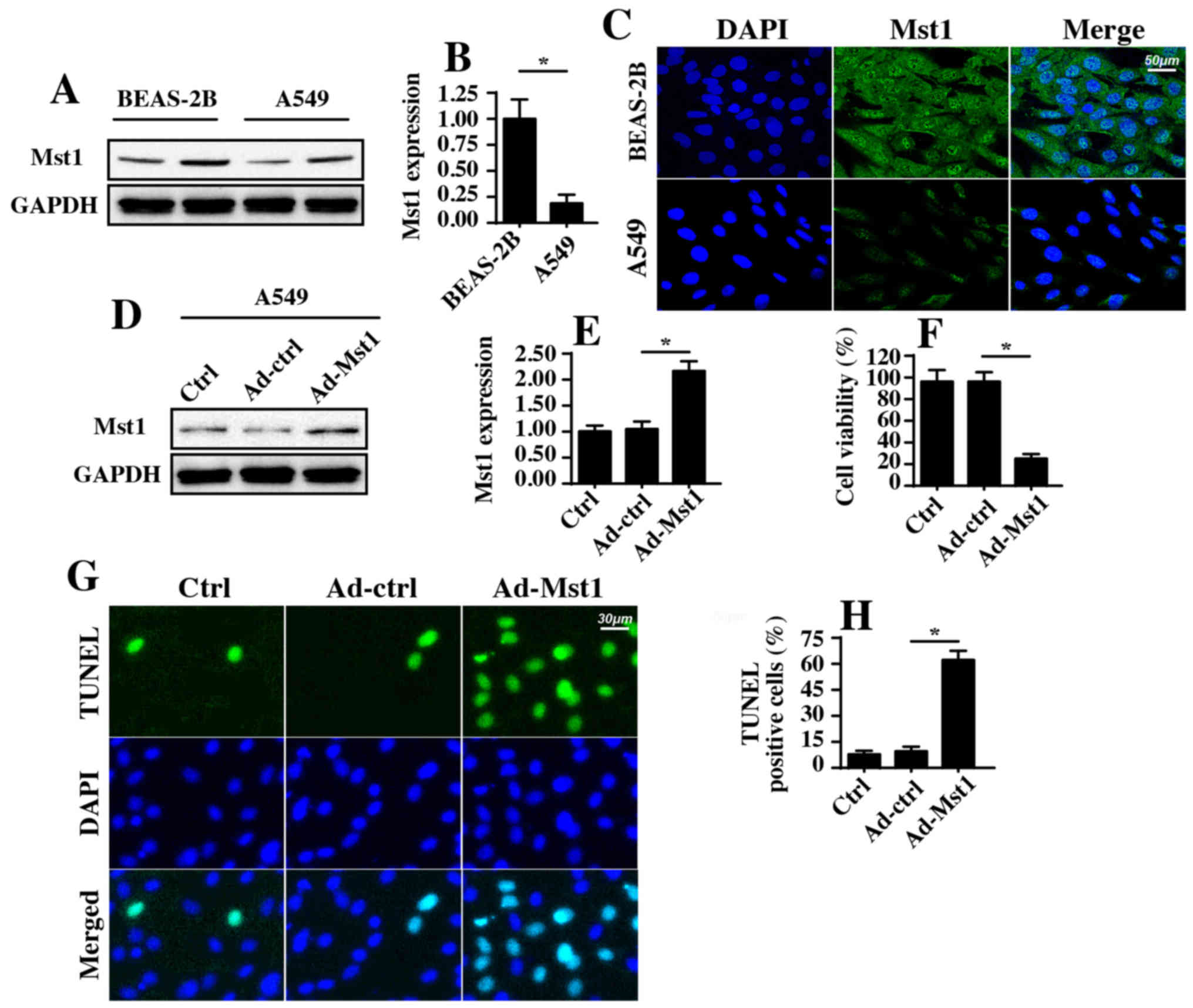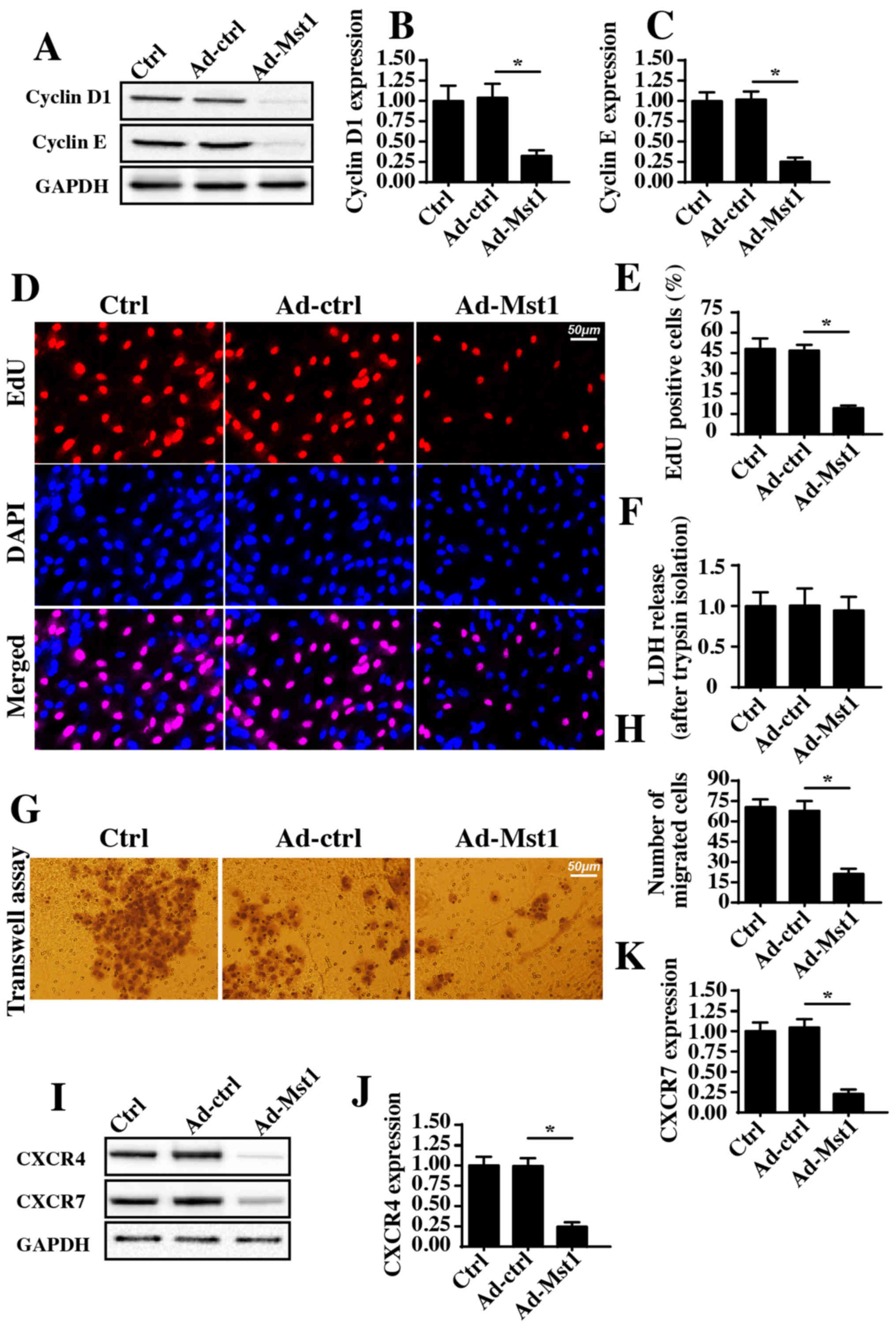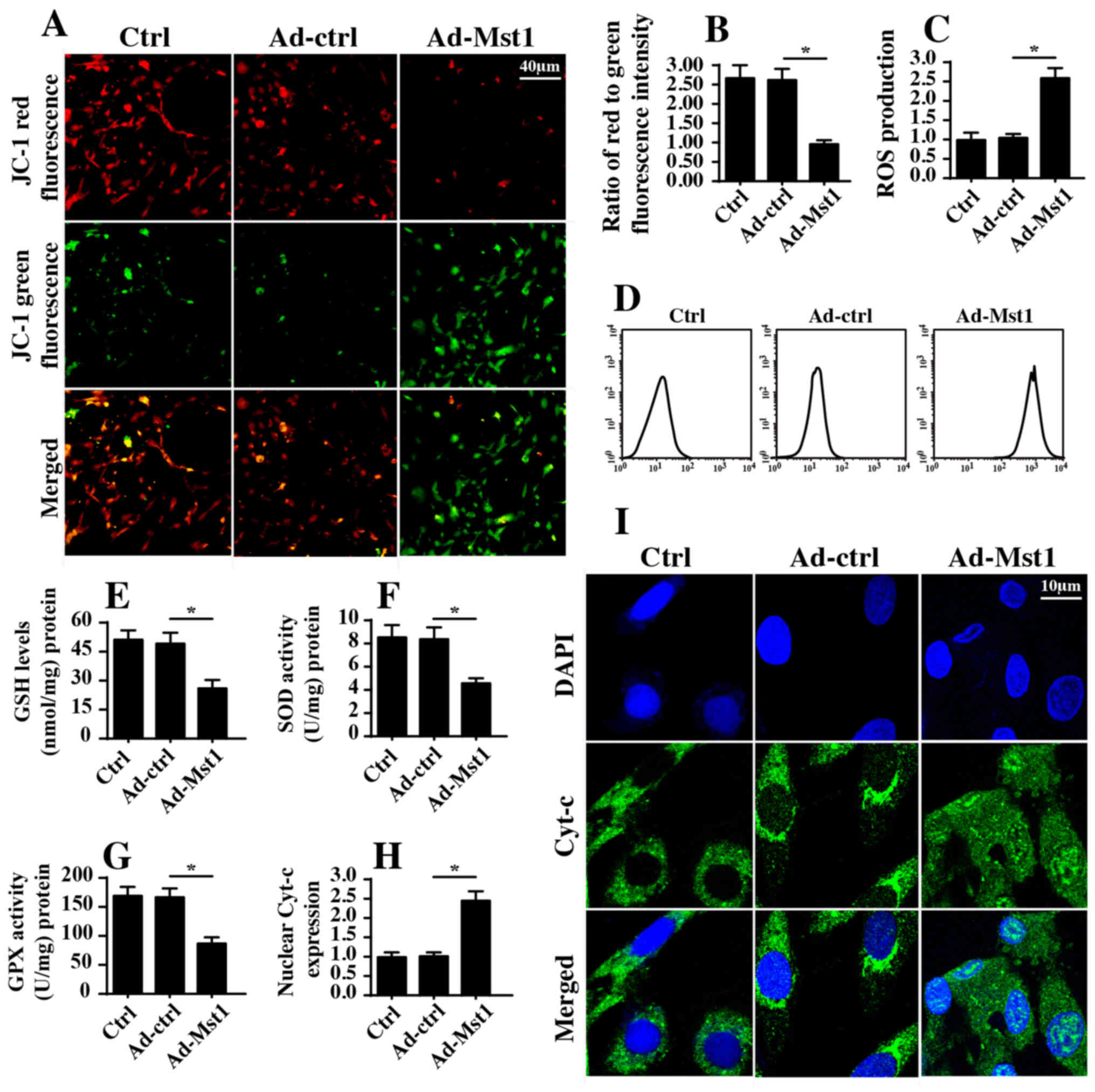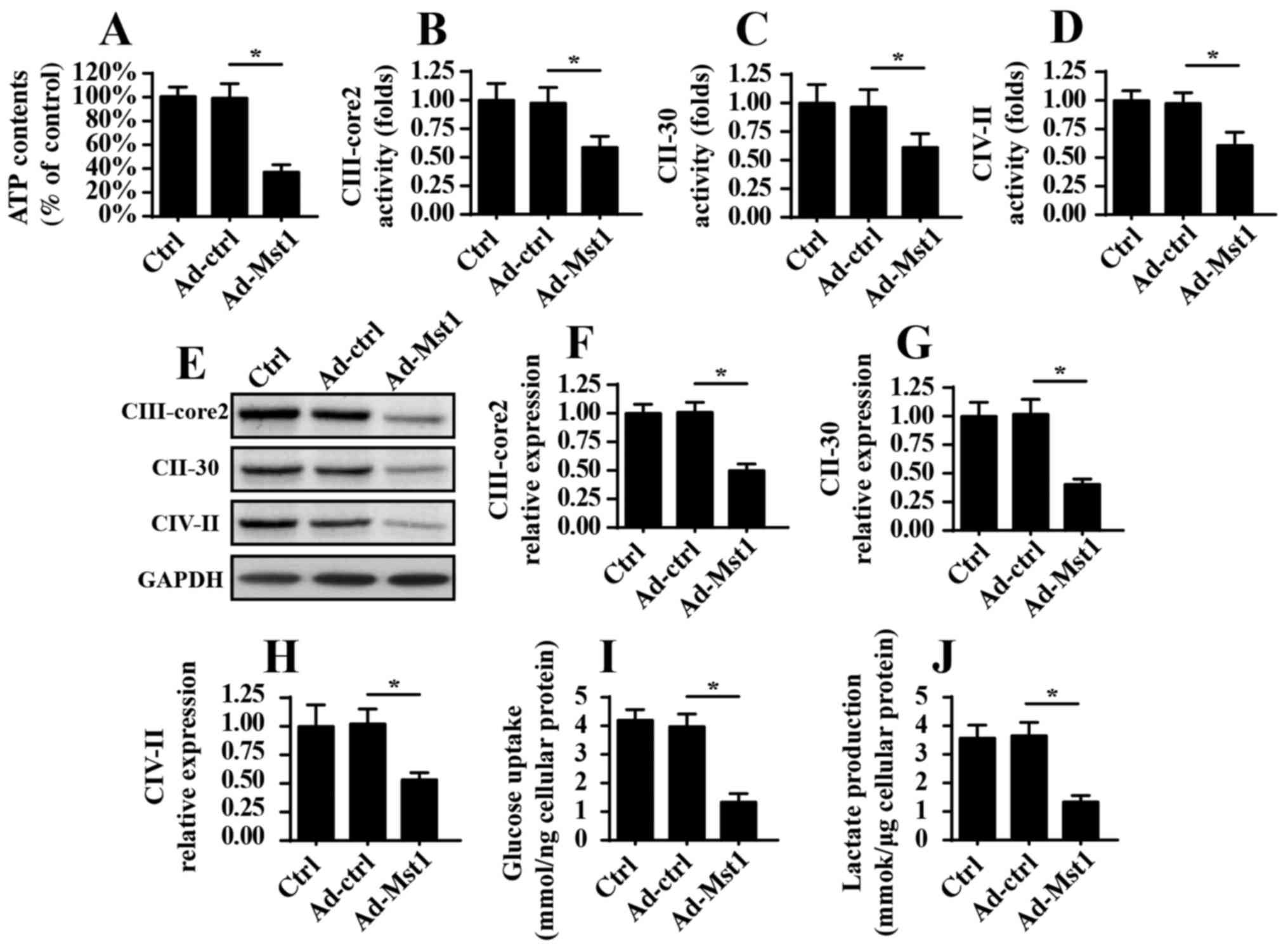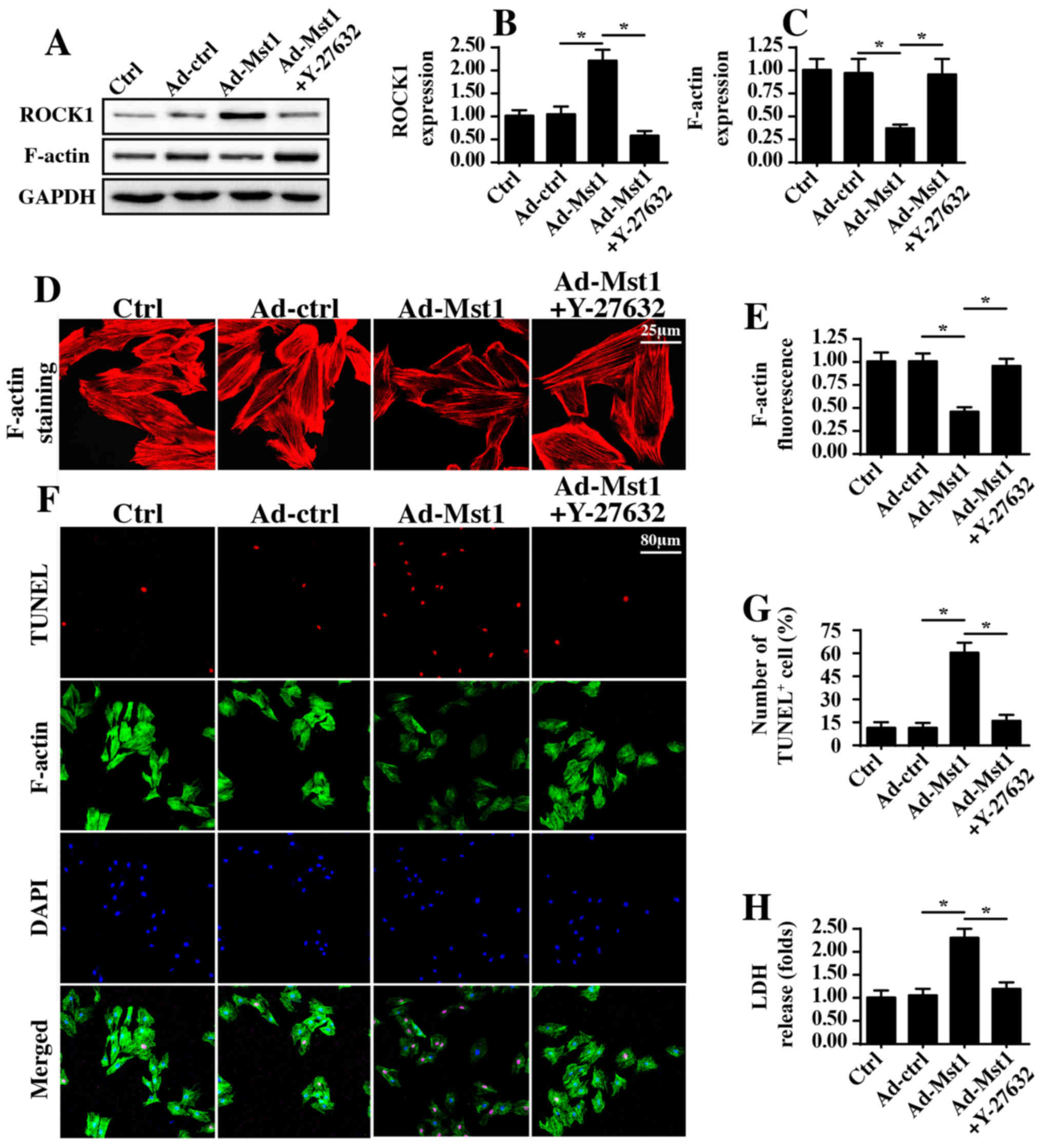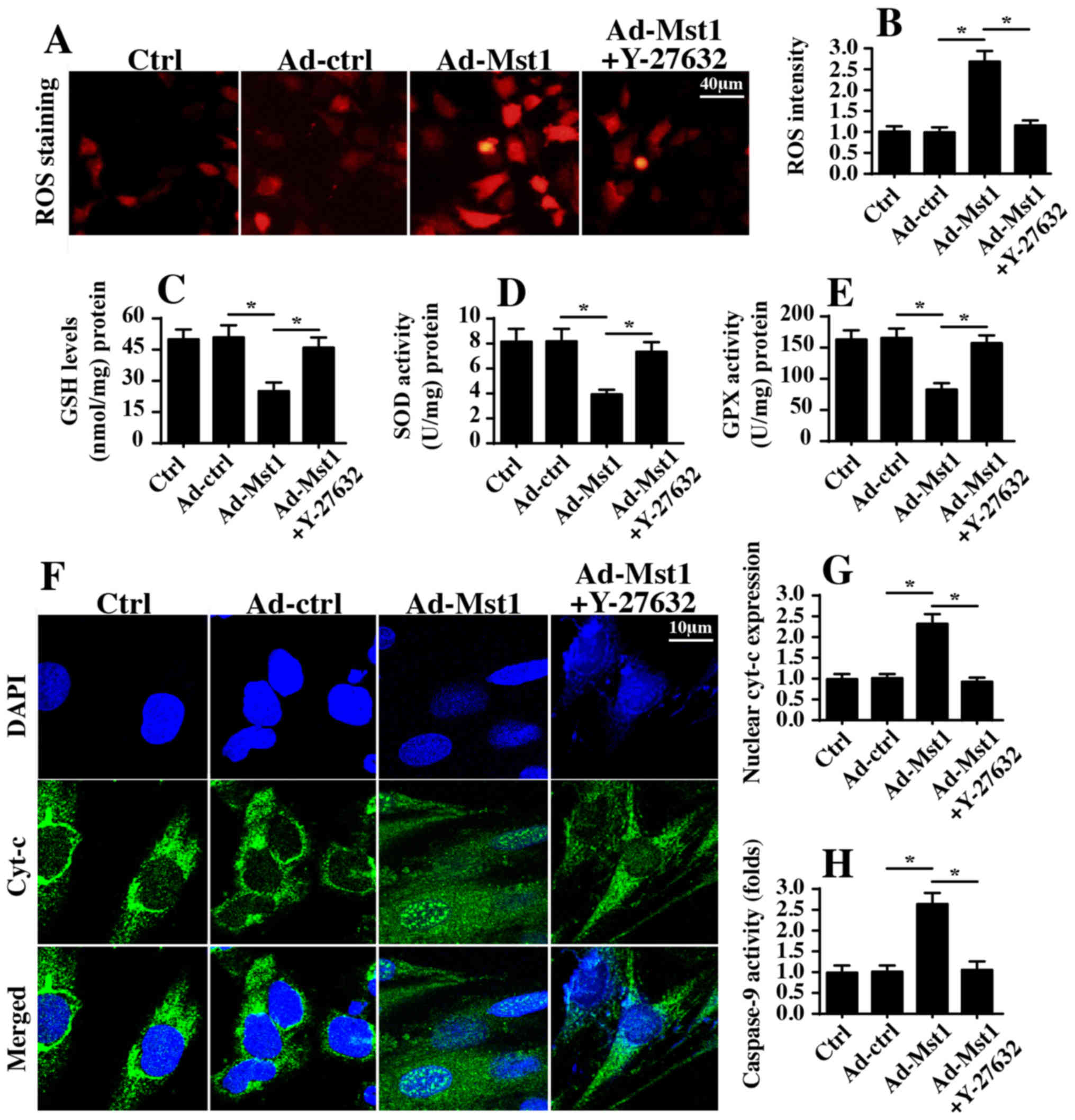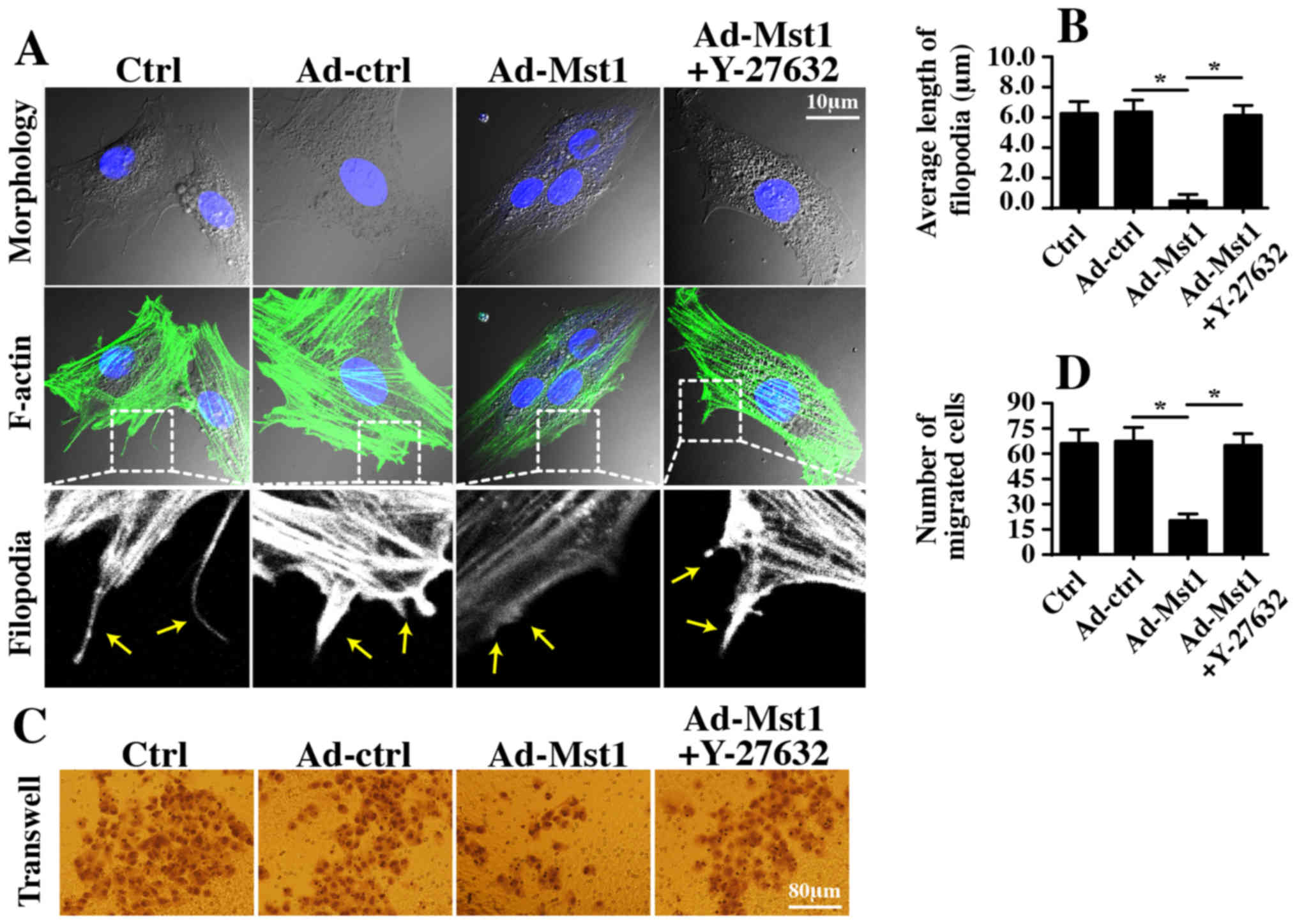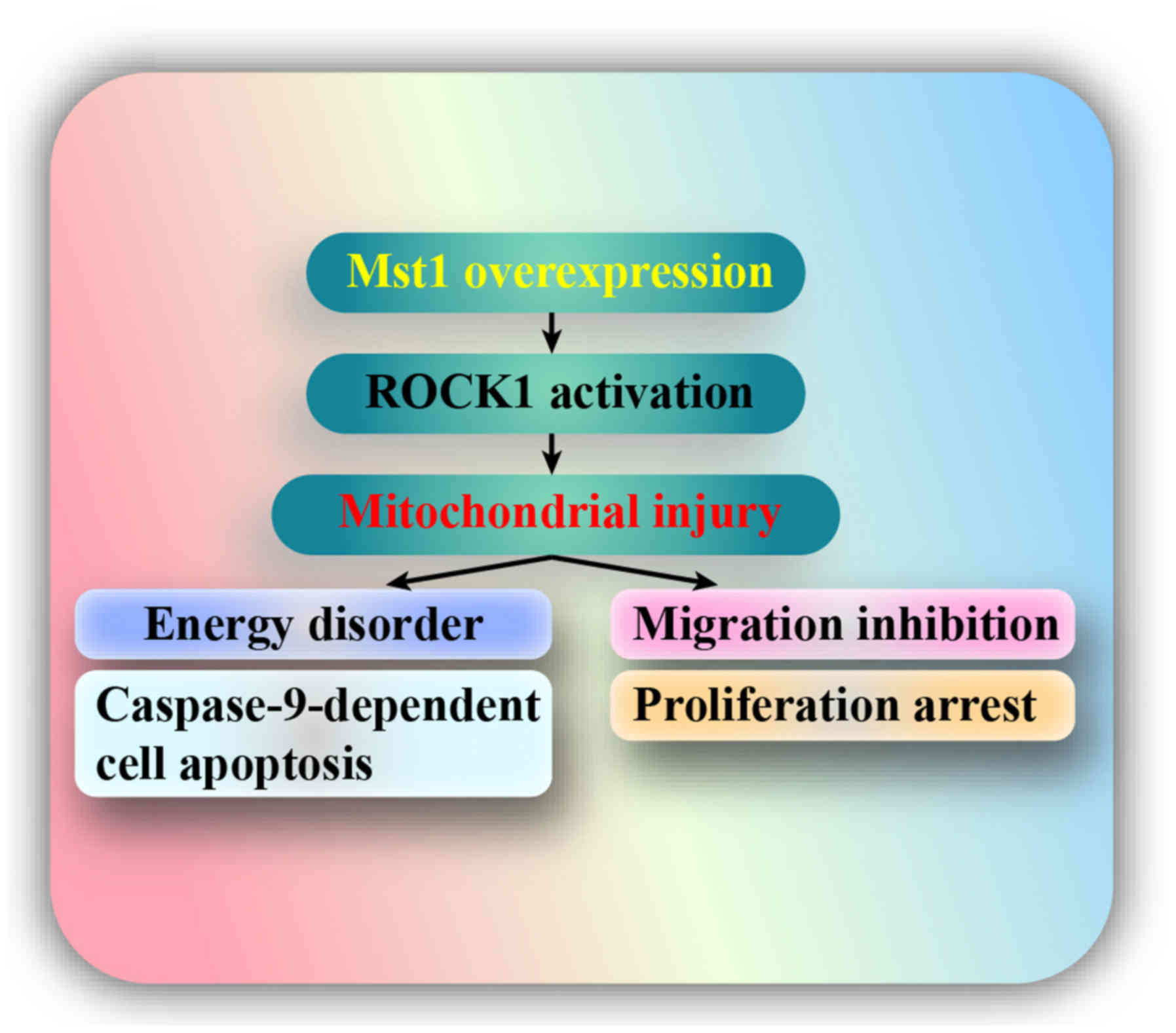|
1
|
Ilie M, Benzaquen J, Hofman V, Lassalle S,
Yazbeck N, Leroy S, Heeke S, Bence C, Mograbi B, Glaichenhaus N, et
al: Immunotherapy in non-small cell lung cancer: Biological
principles and future opportunities. Curr Mol Med. 17:527–540.
2017. View Article : Google Scholar
|
|
2
|
Zhang Y, Lian J and Wang X: Actein
inhibits cell proliferation and migration and promotes cell
apoptosis in human non-small cell lung cancer cells. Oncol Lett.
15:3155–3160. 2018.PubMed/NCBI
|
|
3
|
Patel SH, Camargo FD and Yimlamai D: Hippo
signaling in the liver regulates organ size, cell fate, and
carcinogenesis. Gastroenterology. 152:533–545. 2017. View Article : Google Scholar :
|
|
4
|
Liu M, Liu S, Tan W, Tang F, Long J, Li Z,
Liang B, Chu C and Yang J: Gaseous signalling molecule
SO2 via Hippo-MST pathway to improve myocardial fibrosis
of diabetic rats. Mol Med Rep. 16:8953–8963. 2017. View Article : Google Scholar : PubMed/NCBI
|
|
5
|
Zhang M, Lin J, Wang S, Cheng Z, Hu J,
Wang T, Man W, Yin T, Guo W, Gao E, et al: Melatonin protects
against diabetic cardiomyopathy through Mst1/Sirt3 signaling. J
Pineal Res. Jun 9–2017.Epub ahead of print. View Article : Google Scholar
|
|
6
|
Zhao Q, Ye M, Yang W, Wang M, Li M, Gu C,
Zhao L, Zhang Z, Han W, Fan W, et al: Effect of Mst1 on
endometriosis apoptosis and migration: Role of Drp1-related
mitochondrial fission and Parkin-required mitophagy. Cell Physiol
Biochem. 45:1172–1190. 2018. View Article : Google Scholar : PubMed/NCBI
|
|
7
|
Li Q, Qi F, Meng X, Zhu C and Gao Y: Mst1
regulates colorectal cancer stress response via inhibiting
Bnip3-related mitophagy by activation of JNK/p53 pathway. Cell Biol
Toxicol. 34:263–277. 2018. View Article : Google Scholar
|
|
8
|
Shi C, Cai Y, Li Y, Li Y, Hu N, Ma S, Hu
S, Zhu P, Wang W and Zhou H: Yap promotes hepatocellular carcinoma
metastasis and mobilization via governing
cofilin/F-actin/lamellipodium axis by regulation of
JNK/Bnip3/SERCA/CaMKII pathways. Redox Biol. 14:59–71. 2018.
View Article : Google Scholar
|
|
9
|
Lee MS, Yin TC, Sung PH, Chiang JY, Sun CK
and Yip HK: Melatonin enhances survival and preserves functional
integrity of stem cells: A review. J Pineal Res. Jan 23–2017.Epub
ahead of print. View Article : Google Scholar
|
|
10
|
Zhu H, Jin Q, Li Y, Ma Q, Wang J, Li D,
Zhou H and Chen Y: Melatonin protected cardiac microvascular
endothelial cells against oxidative stress injury via suppression
of IP3R-[Ca2+] c/VDAC-[Ca2+]m axis by
activation of MAPK/ERK signaling pathway. Cell Stress Chaperones.
23:101–113. 2018. View Article : Google Scholar
|
|
11
|
Zhou H, Wang J, Zhu P, Hu S and Ren J:
Ripk3 regulates cardiac microvascular reperfusion injury: The role
of IP3R-dependent calcium overload, XO-mediated oxidative stress
and F-action/filopodia-based cellular migration. Cell Signal.
45:12–22. 2018. View Article : Google Scholar : PubMed/NCBI
|
|
12
|
Yan H, Xiao F, Zou J, Qiu C, Sun W, Gu M
and Zhang L: NR4A1-induced increase in the sensitivity of a human
gastric cancer line to TNFα-mediated apoptosis is associated with
the inhibition of JNK/Parkin-dependent mitophagy. Int J Oncol.
52:367–378. 2018.
|
|
13
|
Yan H, Qiu C, Sun W, Gu M, Xiao F, Zou J
and Zhang L: Yap regulates gastric cancer survival and migration
via SIRT1/Mfn2/mitophagy. Oncol Rep. 39:1671–1681. 2018.PubMed/NCBI
|
|
14
|
Li H, He F, Zhao X, Zhang Y, Chu X, Hua C,
Qu Y, Duan Y and Ming L: YAP inhibits the apoptosis and migration
of human rectal cancer cells via suppression of
JNK-Drp1-mitochondrial fission-HtrA2/Omi pathways. Cell Physiol
Biochem. 44:2073–2089. 2017. View Article : Google Scholar : PubMed/NCBI
|
|
15
|
Tang X, Guo D, Lin C, Shi Z, Qian R, Fu W,
Liu J, Li X and Fan L: hCLOCK causes Rho-kinase-mediated
endothelial dysfunction and NF-κB-mediated inflammatory responses.
Oxid Med Cell Longev. 2015:6718392015. View Article : Google Scholar
|
|
16
|
Mu D, Zhou G, Li J, Su B and Guo H:
Ursolic acid activates the apoptosis of prostate cancer via
ROCK/PTEN mediated mitochondrial translocation of cofilin-1. Oncol
Lett. 15:3202–3206. 2018.PubMed/NCBI
|
|
17
|
Zhang X, Li P, Ding Z, Wang H, Wang J, Han
L and Ding S: The putative tumor suppressor, miR-199a, regulated by
Snail, modulates clear cell renal cell carcinoma aggressiveness by
repressing ROCK1. OncoTargets Ther. 11:103–112. 2017. View Article : Google Scholar
|
|
18
|
Zhao WH, Huang BT, Zhang JY and Zeng QC:
Distinct EphB4-mediated mechanisms of apoptotic and resistance to
dasatinib in human chronic myeloid leukemia and K562 cell lines.
Leuk Res. 63:28–33. 2017. View Article : Google Scholar : PubMed/NCBI
|
|
19
|
Wang Y, Zhang Y, Yang T, Zhao W, Wang N,
Li P, Zeng X and Zhang W: Long non-coding RNA MALAT1 for promoting
metastasis and proliferation by acting as a ceRNA of miR-1443pin
osteosarcoma cells. Oncotarget. 8:59417–59434. 2017.PubMed/NCBI
|
|
20
|
Vennin C, Rath N, Pajic M, Olson MF and
Timpson P: Targeting ROCK activity to disrupt and prime pancreatic
cancer for chemotherapy. Small GTPases. Oct 3–2017.Epub ahead of
print. View Article : Google Scholar : PubMed/NCBI
|
|
21
|
Le Cras TD, Mobberley-Schuman PS, Broering
M, Fei L, Trenor CC III and Adams DM: Angiopoietins as serum
biomarkers for lymphatic anomalies. Angiogenesis. 20:163–173. 2017.
View Article : Google Scholar
|
|
22
|
Zhang W, Tao A, Lan T, Cepinskas G, Kao R,
Martin CM and Rui T: Carbon monoxide releasing molecule-3 improves
myocardial function in mice with sepsis by inhibiting NLRP3
inflammasome activation in cardiac fibroblasts. Basic Res Cardiol.
112:162017. View Article : Google Scholar : PubMed/NCBI
|
|
23
|
Zhou H, Shi C, Hu S, Zhu H, Ren J and Chen
Y: BI1 is associated with microvascular protection in cardiac
ischemia reperfusion injury via repressing
Syk-Nox2-Drp1-mitochondrial fission pathways. Angiogenesis.
21:599–615. 2018. View Article : Google Scholar : PubMed/NCBI
|
|
24
|
García-Niño WR, Correa F,
Rodríguez-Barrena JI, León-Contreras JC, Buelna-Chontal M,
Soria-Castro E, Hernández-Pando R, Pedraza-Chaverri J and Zazueta
C: Cardioprotective kinase signaling to subsarcolemmal and
inter-fibrillar mitochondria is mediated by caveolar structures.
Basic Res Cardiol. 112:152017. View Article : Google Scholar
|
|
25
|
Ackermann M, Kim YO, Wagner WL, Schuppan
D, Valenzuela CD, Mentzer SJ, Kreuz S, Stiller D, Wollin L and
Konerding MA: Effects of nintedanib on the microvascular
architecture in a lung fibrosis model. Angiogenesis. 20:359–372.
2017. View Article : Google Scholar : PubMed/NCBI
|
|
26
|
Zhou H, Yang J, Xin T, Zhang T, Hu S, Zhou
S, Chen G and Chen Y: Exendin-4 enhances the migration of
adipose-derived stem cells to neonatal rat ventricular
cardiomyocyte-derived conditioned medium via the phosphoinositide
3-kinase/Akt-stromal cell-derived factor-1α/CXC chemokine receptor
4 pathway. Mol Med Rep. 11:4063–4072. 2015. View Article : Google Scholar : PubMed/NCBI
|
|
27
|
Kalyanaraman B: Teaching the basics of
cancer metabolism: Developing antitumor strategies by exploiting
the differences between normal and cancer cell metabolism. Redox
Biol. 12:833–842. 2017. View Article : Google Scholar : PubMed/NCBI
|
|
28
|
Das N, Mandala A, Naaz S, Giri S, Jain M,
Bandyopadhyay D, Reiter RJ and Roy SS: Melatonin protects against
lipid-induced mitochondrial dysfunction in hepatocytes and inhibits
stellate cell activation during hepatic fibrosis in mice. J Pineal
Res. Mar 27–2017.Epub ahead of print. View Article : Google Scholar : PubMed/NCBI
|
|
29
|
Alghanem AF, Wilkinson EL, Emmett MS,
Aljasir MA, Holmes K, Rothermel BA, Simms VA, Heath VL and Cross
MJ: RCAN1.4 regulates VEGFR-2 internalisation, cell polarity and
migration in human microvascular endothelial cells. Angiogenesis.
20:341–358. 2017. View Article : Google Scholar : PubMed/NCBI
|
|
30
|
Vargas LA, Velasquez FC and Alvarez BV:
Compensatory role of the NBCn1 sodium/bicarbonate cotransporter on
Ca2+-induced mitochondrial swelling in hypertrophic
hearts. Basic Res Cardiol. 112:142017. View Article : Google Scholar
|
|
31
|
Jovancevic N, Dendorfer A, Matzkies M,
Kovarova M, Heckmann JC, Osterloh M, Boehm M, Weber L, Nguemo F,
Semmler J, et al: Medium-chain fatty acids modulate myocardial
function via a cardiac odorant receptor. Basic Res Cardiol.
112:132017. View Article : Google Scholar : PubMed/NCBI
|
|
32
|
Zhou H, Wang S, Hu S, Chen Y and Ren J:
ER-mitochondria microdomains in cardiac ischemia-reperfusion
injury: A fresh perspective. Front Physiol. 9:7552018. View Article : Google Scholar : PubMed/NCBI
|
|
33
|
Ligeza J, Marona P, Gach N, Lipert B,
Miekus K, Wilk W, Jaszczynski J, Stelmach A, Loboda A, Dulak J, et
al: MCPIP1 contributes to clear cell renal cell carcinomas
development. Angiogenesis. 20:325–340. 2017. View Article : Google Scholar : PubMed/NCBI
|
|
34
|
Ronchi C, Torre E, Rizzetto R, Bernardi J,
Rocchetti M and Zaza A: Late sodium current and intracellular ionic
homeostasis in acute ischemia. Basic Res Cardiol. 112:122017.
View Article : Google Scholar : PubMed/NCBI
|
|
35
|
Couto JA, Ayturk UM, Konczyk DJ, Goss JA,
Huang AY, Hann S, Reeve JL, Liang MG, Bischoff J, Warman ML, et al:
A somatic GNA11 mutation is associated with extremity capillary
malformation and overgrowth. Angiogenesis. 20:303–306. 2017.
View Article : Google Scholar : PubMed/NCBI
|
|
36
|
Xiao L, Xu X, Zhang F, Wang M, Xu Y, Tang
D, Wang J, Qin Y, Liu Y, Tang C, et al: The mitochondria-targeted
antioxidant MitoQ ameliorated tubular injury mediated by mitophagy
in diabetic kidney disease via Nrf2/PINK1. Redox Biol. 11:297–311.
2017. View Article : Google Scholar :
|
|
37
|
Pickard JMJ, Burke N, Davidson SM and
Yellon DM: Intrinsic cardiac ganglia and acetylcholine are
important in the mechanism of ischaemic preconditioning. Basic Res
Cardiol. 112:112017. View Article : Google Scholar : PubMed/NCBI
|
|
38
|
Torres-Estay V, Carreño DV, Fuenzalida P,
Watts A, San Francisco IF, Montecinos VP, Sotomayor PC, Ebos J,
Smith GJ and Godoy AS: Androgens modulate male-derived endothelial
cell homeostasis using androgen receptor-dependent and
receptor-independent mechanisms. Angiogenesis. 20:25–38. 2017.
View Article : Google Scholar
|
|
39
|
Randriamboavonjy V, Kyselova A, Elgheznawy
A, Zukunft S, Wittig I and Fleming I: Calpain 1 cleaves and
inactivates prostacyclin synthase in mesenteric arteries from
diabetic mice. Basic Res Cardiol. 112:102017. View Article : Google Scholar
|
|
40
|
Zhou H, Yue Y, Wang J, Ma Q and Chen Y:
Melatonin therapy for diabetic cardiomyopathy: A mechanism
involving Syk-mitochondrial complex I-SERCA pathway. Cell Signal.
47:88–100. 2018. View Article : Google Scholar : PubMed/NCBI
|
|
41
|
Li R, Xin T, Li D, Wang C, Zhu H and Zhou
H: Therapeutic effect of Sirtuin 3 on ameliorating nonalcoholic
fatty liver disease: The role of the ERK-CREB pathway and
Bnip3-mediated mitophagy. Redox Biol. 18:229–243. 2018. View Article : Google Scholar : PubMed/NCBI
|
|
42
|
Tamura H, Kawamoto M, Sato S, Tamura I,
Maekawa R, Taketani T, Aasada H, Takaki E, Nakai A, Reiter RJ, et
al: Long-term melatonin treatment delays ovarian aging. J Pineal
Res. Jan 23–2017.Epub ahead of print. View Article : Google Scholar
|
|
43
|
Zhou H, Zhu P, Wang J, Zhu H, Ren J and
Chen Y: Pathogenesis of cardiac ischemia reperfusion injury is
associated with CK2α-disturbed mitochondrial homeostasis via
suppression of FUNDC1-related mitophagy. Cell Death Differ.
25:1080–1093. 2018. View Article : Google Scholar : PubMed/NCBI
|
|
44
|
Van Nostrand JL, Bowen ME, Vogel H, Barna
M and Attardi LD: The p53 family members have distinct roles during
mammalian embryonic development. Cell Death Differ. 24:575–579.
2017. View Article : Google Scholar : PubMed/NCBI
|
|
45
|
Li W, Deng Y, Feng B and Mak KK: Mst1/2
kinases modulate glucose uptake for osteoblast differentiation and
bone formation. J Bone Miner Res. 33:1183–1195. 2018. View Article : Google Scholar : PubMed/NCBI
|
|
46
|
Chen Z, Shi H, Sun S, Luo J, Zhang W, Hou
Y and Loor JJ: miR-183 regulates milk fat metabolism via MST1 in
goat mammary epithelial cells. Gene. 646:12–19. 2018. View Article : Google Scholar
|
|
47
|
Yu J, Zhai X, Li X, Zhong C, Guo C, Yang
F, Yuan Y and Zheng S: Identification of MST1 as a potential early
detection biomarker for colorectal cancer through a proteomic
approach. Sci Rep. 7:142652017. View Article : Google Scholar : PubMed/NCBI
|
|
48
|
Ruiz-Torres SJ, Benight NM, Karns RA,
Lower EE, Guan JL and Waltz SE: HGFL-mediated RON signaling
supports breast cancer stem cell phenotypes via activation of
non-canonical β-catenin signaling. Oncotarget. 8:58918–58933. 2017.
View Article : Google Scholar : PubMed/NCBI
|
|
49
|
Gao ZQ, Wang JF, Chen DH, Ma XS, Yang W,
Zhe T and Dang XW: Long non-coding RNA GAS5 antagonizes the
chemo-resistance of pancreatic cancer cells through down-regulation
of miR-181c-5p. Biomed Pharmacother. 97:809–817. 2018. View Article : Google Scholar
|
|
50
|
Zheng X, Dong Q, Zhang X, Han Q, Han X,
Han Y, Wu J, Rong X and Wang E: The coiled-coil domain of oncogene
RASSF 7 inhibits hippo signaling and promotes non-small cell lung
cancer. Oncotarget. 8:78734–78748. 2017.PubMed/NCBI
|
|
51
|
Ashokkumar R, Jamuna S, Sakeena Sadullah
MS and Niranjali Devaraj S: Vitexin protects isoproterenol induced
post myocardial injury by modulating hipposignaling and ER stress
responses. Biochem Biophys Res Commun. 496:731–737. 2018.
View Article : Google Scholar : PubMed/NCBI
|
|
52
|
Yu L, Liu Y, Jin Y, Cao X, Chen J, Jin J,
Gu Y, Bao X, Ren Z, Xu Y, et al: Lentivirus-mediated HDAC3
inhibition attenuates oxidative stress in APPswe/PS1dE9 mice. J
Alzheimers Dis. 61:1411–1424. 2018. View Article : Google Scholar : PubMed/NCBI
|
|
53
|
Li X, Zhao X, Song W, Tian Z, Yang L, Niu
Q, Zhang Q, Xie M, Zhou B, Xu Y, et al: Pseudolaric acid B inhibits
proliferation, invasion and epithelial-to-mesenchymal transition in
human pancreatic cancer cell. Yonsei Med J. 59:20–27. 2018.
View Article : Google Scholar
|
|
54
|
Wang S, Fan Y, Feng X, Sun C, Shi Z, Li T,
Lv J, Yang Z, Zhao Z and Sun D: Nicorandil alleviates myocardial
injury and post-infarction cardiac remodeling by inhibiting Mst1.
Biochem Biophys Res Commun. 495:292–299. 2018. View Article : Google Scholar
|
|
55
|
Zhou H, Wang J, Zhu P, Zhu H, Toan S, Hu
S, Ren J and Chen Y: NR4A1 aggravates the cardiac microvascular
ischemia reperfusion injury through suppressing FUNDC1-mediated
mitophagy and promoting Mff-required mitochondrial fission by CK2α.
Basic Res Cardiol. 113:232018. View Article : Google Scholar
|
|
56
|
Su S and Nie X: miR-139 prompts the
development of osteosarcomas mainly through targeting ROCK1.
Pharmazie. 72:759–763. 2017.
|
|
57
|
Wang X, Sun D, Tai J, Chen S, Yu M, Ren D
and Wang L: TFAP2C promotes stemness and chemotherapeutic
resistance in colorectal cancer via inactivating hippo signaling
pathway. J Exp Clin Cancer Res. 37:272018. View Article : Google Scholar : PubMed/NCBI
|
|
58
|
Lin L, Li M, Lin L, Xu X, Jiang G and Wu
L: FPPS mediates TGF-β1-induced non-small cell lung cancer cell
invasion and the EMT process via the RhoA/Rock1 pathway. Biochem
Biophys Res Commun. 496:536–541. 2018. View Article : Google Scholar : PubMed/NCBI
|















